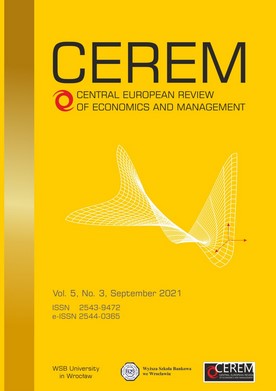The impact of rivalry and excludability on Personal Social Responsibility regarding transport behaviour - a pilot study
The impact of rivalry and excludability on Personal Social Responsibility regarding transport behaviour - a pilot study
Author(s): Monika ParadowskaSubject(s): Rural and urban sociology, Environmental interactions, Transport / Logistics
Published by: Wyższa Szkoła Bankowa we Wrocławiu
Keywords: transport behaviour; personal social responsibility (PSR); rivalry; excludability; sustainable transport;
Summary/Abstract: Aim: While transport systems play a crucial role in socio-economic development, its expansion has serious environmental impacts. Reducing rivalry in use by supporting public transport, cycling and walking, as well as exclusion of car users are popular instruments to support sustainable transport. While such policy (external stimuli) may lead to positive impact in the short run, a change in attitude of transport users may be necessary in order to long-term sustainable transport. This attitude change is related to Personal Social Responsibility (PSR), relying on the education of a conscious and responsible society and influencing individual transport choices of individuals. The purpose of the paper is to examine the impact of modifications of the levels of rivalry and excludability in the access to transport systems on the development of Personal Social Responsibility in terms of sustainable transport behaviour. Design/ Research methods: Based on literature review, a survey was developed to provide an answer to the main research question: To what extent do changes in the urban transport system supporting sustainable transport have an impact on transport behaviour? The following elements of Personal Social Responsibility are considered: aware and voluntary transport choices, state-of-well-being resulting from choices, environmental and social impact, and being a good example to others Conclusions/findings: The respondents observed numerous changes in the elements of the Wrocław transport system they use (Wrocław is a large city in the South-West of Poland), mainly related to the development of road infrastructure. The level of competition between individual transport users remained largely unchanged or slightly decreased, to the benefit of pedestrians, cyclists and public transport users. Only 26.21% of the respondents declared a change of the most frequently used means of transport, with half of them choosing to drive by car, and half - by public transport. These changes were not related to concerns about ecology, the local community or awareness of doing good for people and the environment. Therefore, it can be concluded that they resulted from external stimuli affecting private benefits not related to the development of the PSR.
Journal: Central European Review of Economics and Management (CEREM)
- Issue Year: 5/2021
- Issue No: 3
- Page Range: 69-90
- Page Count: 22
- Language: English

